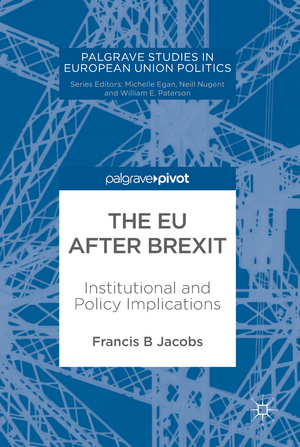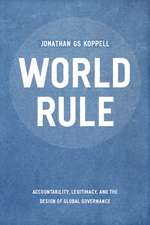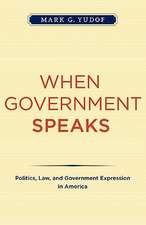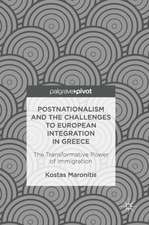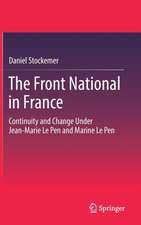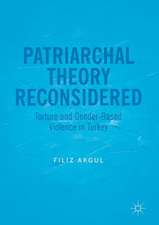The EU after Brexit: Institutional and Policy Implications: Palgrave Studies in European Union Politics
Autor Francis B Jacobsen Limba Engleză Hardback – 14 mai 2018
Din seria Palgrave Studies in European Union Politics
- 20%
 Preț: 691.32 lei
Preț: 691.32 lei - 20%
 Preț: 691.52 lei
Preț: 691.52 lei - 9%
 Preț: 798.62 lei
Preț: 798.62 lei - 20%
 Preț: 755.99 lei
Preț: 755.99 lei -
 Preț: 282.28 lei
Preț: 282.28 lei - 18%
 Preț: 889.75 lei
Preț: 889.75 lei - 20%
 Preț: 690.39 lei
Preț: 690.39 lei -
 Preț: 243.89 lei
Preț: 243.89 lei -
 Preț: 388.72 lei
Preț: 388.72 lei -
 Preț: 388.72 lei
Preț: 388.72 lei -
 Preț: 393.52 lei
Preț: 393.52 lei -
 Preț: 392.60 lei
Preț: 392.60 lei -
 Preț: 390.25 lei
Preț: 390.25 lei -
 Preț: 390.63 lei
Preț: 390.63 lei -
 Preț: 389.70 lei
Preț: 389.70 lei -
 Preț: 387.96 lei
Preț: 387.96 lei -
 Preț: 391.61 lei
Preț: 391.61 lei -
 Preț: 391.61 lei
Preț: 391.61 lei -
 Preț: 392.60 lei
Preț: 392.60 lei -
 Preț: 386.81 lei
Preț: 386.81 lei -
 Preț: 390.63 lei
Preț: 390.63 lei -
 Preț: 386.00 lei
Preț: 386.00 lei -
 Preț: 392.60 lei
Preț: 392.60 lei -
 Preț: 388.72 lei
Preț: 388.72 lei - 15%
 Preț: 645.79 lei
Preț: 645.79 lei -
 Preț: 391.61 lei
Preț: 391.61 lei - 15%
 Preț: 645.47 lei
Preț: 645.47 lei -
 Preț: 392.21 lei
Preț: 392.21 lei -
 Preț: 386.81 lei
Preț: 386.81 lei -
 Preț: 390.63 lei
Preț: 390.63 lei -
 Preț: 390.63 lei
Preț: 390.63 lei -
 Preț: 387.75 lei
Preț: 387.75 lei -
 Preț: 389.88 lei
Preț: 389.88 lei -
 Preț: 388.52 lei
Preț: 388.52 lei -
 Preț: 391.61 lei
Preț: 391.61 lei -
 Preț: 400.26 lei
Preț: 400.26 lei -
 Preț: 387.75 lei
Preț: 387.75 lei -
 Preț: 386.81 lei
Preț: 386.81 lei -
 Preț: 388.72 lei
Preț: 388.72 lei -
 Preț: 389.88 lei
Preț: 389.88 lei -
 Preț: 391.61 lei
Preț: 391.61 lei -
 Preț: 389.70 lei
Preț: 389.70 lei -
 Preț: 386.81 lei
Preț: 386.81 lei -
 Preț: 389.88 lei
Preț: 389.88 lei -
 Preț: 388.72 lei
Preț: 388.72 lei - 15%
 Preț: 643.48 lei
Preț: 643.48 lei - 15%
 Preț: 582.63 lei
Preț: 582.63 lei -
 Preț: 398.35 lei
Preț: 398.35 lei - 15%
 Preț: 644.18 lei
Preț: 644.18 lei
Preț: 384.48 lei
Nou
Puncte Express: 577
Preț estimativ în valută:
73.57€ • 76.81$ • 60.89£
73.57€ • 76.81$ • 60.89£
Carte tipărită la comandă
Livrare economică 04-18 aprilie
Preluare comenzi: 021 569.72.76
Specificații
ISBN-13: 9783319772783
ISBN-10: 3319772783
Pagini: 122
Ilustrații: V, 142 p.
Dimensiuni: 148 x 210 x 16 mm
Greutate: 0.33 kg
Ediția:1st ed. 2018
Editura: Springer International Publishing
Colecția Palgrave Pivot
Seria Palgrave Studies in European Union Politics
Locul publicării:Cham, Switzerland
ISBN-10: 3319772783
Pagini: 122
Ilustrații: V, 142 p.
Dimensiuni: 148 x 210 x 16 mm
Greutate: 0.33 kg
Ediția:1st ed. 2018
Editura: Springer International Publishing
Colecția Palgrave Pivot
Seria Palgrave Studies in European Union Politics
Locul publicării:Cham, Switzerland
Cuprins
Chapter 1: Introduction.- Chapter 2: Will the EU become stronger or weaker or even collapse as a result of Brexit?.- Chapter 3: Attitudes within other Member States to the future of the EU in the light of Brexit.- Chapter 4: Strategic options for the EU : EU institutional reactions to the future of Europe (and to the Brexit negotiations).- Chapter 5: The potential institutional impacts of Brexit.- Chapter 6: The potential cultural impacts of Brexit.- Chapter 7: The UK and Europe.- Chapter 8: EU policies and priorities in a post-Brexit era.- Chapter 9: Some final challenges and a few conclusions.
Notă biografică
Francis Brendan Jacobs is Adjunct Senior Research Fellow at University College Dublin, Ireland. He worked for the European Parliament from 1979 until 2016 and is the co-author of The European Parliament (9th edition, 2016), as well as being the editor and principal compiler of the reference work Western European Political Parties (1989). He is a frequent lecturer on EU matters, and has written many other articles and chapters in books.
Textul de pe ultima copertă
Much attention has been paid to the ongoing and unpredictable Brexit negotiations between the EU and the UK, but much less on what the absence of the UK might entail for the remaining 27 EU Member States. This book explores the range of implications for the EU after Brexit, and whether it is likely to become stronger or weaker as a result. It reviews the different attitudes on the EU’s future within both the member states and the individual EU institutions, and examines the impacts of Brexit on the composition of the EU institutions and on the balance of power between the member states. It also looks at linguistic and cultural impacts, the UK’s wider legacy for the EU and possible changes in EU priorities. The author concludes that Brexit has reinforced the EU’s unity in the short term, but that the EU will have to confront a number of key challenges if it is to be reinforced in the longer term. This book will appeal to practitioners, scholars and students interested in EU politics andintegration in general, and Brexit in particular.
Caracteristici
Written by an expert on the European Parliament Considers the institutional and policy outcomes for the EU post-Brexit Discusses the UK's legacy for the EU
